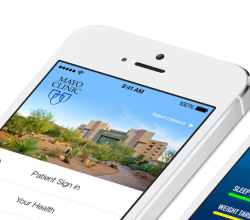Mobile messaging is changing communication in healthcare. For health professionals, mobile messaging is a fast and efficient way of managing workflows and coordinating care, while from a patient’s perspective, the platform provides a convenient and familiar line of communication with practices and caregivers.
More traditional methods of communication, like paging, are typically limited one-way communication and rely on a host of external factors to work effectively, so it’s no real surprise that mobile messaging, which allows two-way or group collaboration, is growing in popularity. Some of the key benefits of mobile messaging include:
Saves time – Communication via mobile messaging is instant and direct. Entire care teams are able to collaborate with one another and the real-time nature of mobile messaging makes it possible to check whether or not recipients have read or responded to messages.
Minimizes error – The Joint Commission estimates that miscommunication is the root cause of 80 percent of all medical errors. Mobile messaging reduces the requirement for emailing, paging, faxing, and voice mailing, which in turn, reduces the risk of error.
Reduces cost – Mobile messaging is relatively cheap to implement alongside paging, email, or telephone communication, which can significantly reduce costs over time.
Improves communication – So long as the mobile messaging platform being used is HIPAA-secure, there are few restrictions on the type of information that can be exchanged, which can improve the effectiveness of communication between physicians and patients.
Improves patient outcomes – A study of two Pennsylvania hospitals revealed that care coordination teams are able to reduce patients’ length of stay when using secure text messaging instead of paging.
Despite the many benefits that mobile messaging can provide, it is not without risks. To avoid private health information winding up in the wrong hands, and the potentially devastating outcomes that come with such scenarios, healthcare organizations should address mobile messaging as part of their risk analysis and management strategy under the HIPAA security rule.
Three steps to mobile messaging security
1. Establish workplace policies that regulate security procedures and ensure all staff are trained to follow them, while also being made aware of the sanctions for violation. Policies should outline procedures for remote disable and wipe, deletion of messages after a period of time, password protection, and access authorization.
2. Develop a statement of understanding which outlines that patients have the right to choose their preferred method of communication. If a secure mobile messaging platform is not in place, patients need to be informed of the risks that exist.
3. Implement a HIPAA-compliant, secure messaging platform to ensure messages are encrypted, and sent through a safe server. These platforms typically store data securely in the cloud, as opposed to individual mobile devices, so it can be remotely wiped should a device wind up lost or stolen.
Mobile messaging is transforming the way medical professionals coordinate care, but patient convenience should never come at the expense of privacy.

.jpg)






